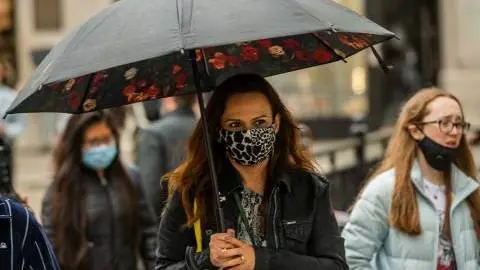UK: Economic challenges mount as Covid-19 and Brexit collide
A renewed spike in Covid-19 cases and the growing likelihood of new restrictions suggests the economy will have a difficult winter. A 'no deal' Brexit scenario would only add further challenges, and that's putting pressure on the UK government to reach an agreement with the EU
Further restrictions could send the recovery into reverse
Having experienced one of the sharpest economic contractions in the developed world over the first half of the year, the UK economy has recovered some ground through the summer. The reopening of the majority of sectors, combined with relatively stable Covid-19 cases, had contributed to a more predictable operating environment for businesses. We’re expecting to see a bumper 16-17% growth figure for the third quarter.
But like many parts of Europe, things are starting to change. The recovery looks set to stall in the fourth quarter and in fact, has the potential to go into reverse. Covid-19 cases have spiked, particularly in parts of Northern England where the weekly growth is now over 500 cases per 100,000 people. And as we’ve seen in parts of France, there are a growing number of reports suggesting the government could close parts of the hospitality industry again, initially in hotspots, but ultimately perhaps at a national level.
We’ve calculated that a two-week national shutdown of ‘social spending’ venues could see a hit to monthly GDP in the region of 3%. If these closures were to become semi-permanent over the winter, overall fourth-quarter growth could easily then come in negative.
We’ve calculated that a two-week national shutdown of ‘social spending’ venues could see a hit to monthly GDP in the region of 3%. If these closures were to become semi-permanent over the winter, overall fourth-quarter growth could easily then come in negative.
All of this looks likely to compound the strains in the jobs market. Unlike other parts of Europe, the UK has opted against extending the Job Retention Scheme into next year. The replacement Job Support Scheme, which adds some state support for workers only able to work part of their normal hours, is unlikely to fully prevent a wave of redundancies once the existing furlough scheme ends in October.
Northern England has seen a sharp spike in cases
Pressure is mounting on the UK government to agree and EU deal
One side effect of all of this economic turbulence is that it may increase the probability of a UK-EU trade deal being agreed after all.
Disruption in early 2021 in a ’no deal’ scenario, combined with the current spike in Covid-19 cases, would not be a good combination (although it’s worth saying there will be some, albeit less, disruption even if there is a deal agreed). The ruling Conservative party has also slipped behind in the polls, which has added another layer of political pressure to secure a ‘win’.
A deal is undoubtedly becoming more likely, and remains our base case, but there’s still plenty of scope for things to go wrong. A month is a long time in politics
This seems to have contributed to a cautiously optimistic air surrounding Brexit talks over recent weeks. Intensified negotiations are ongoing, and the stage has been tentatively set for a deal in late October or early November.
But as has been the case all along, the ball remains in the UK’s court. A deal will require some heavy compromises from Prime Minister Boris Johnson, particularly on the issue of state aid - a move that is unlikely to go down well in the eurosceptic corners of his party. And while the government has a strong majority in the House of Commons, ministers have been increasingly forced to strike deals with Conservative MPs to secure their ongoing support, most recently on certain aspects of Covid-19 legislation.
The upshot is that while a deal is undoubtedly becoming more likely, and remains our base case, there’s still plenty of scope for things to go wrong. A month is a long time in politics.
This publication has been prepared by ING solely for information purposes irrespective of a particular user's means, financial situation or investment objectives. The information does not constitute investment recommendation, and nor is it investment, legal or tax advice or an offer or solicitation to purchase or sell any financial instrument. Read more
Download
Download article
9 October 2020
October Economic Monthly: Winter is coming This bundle contains 12 Articles